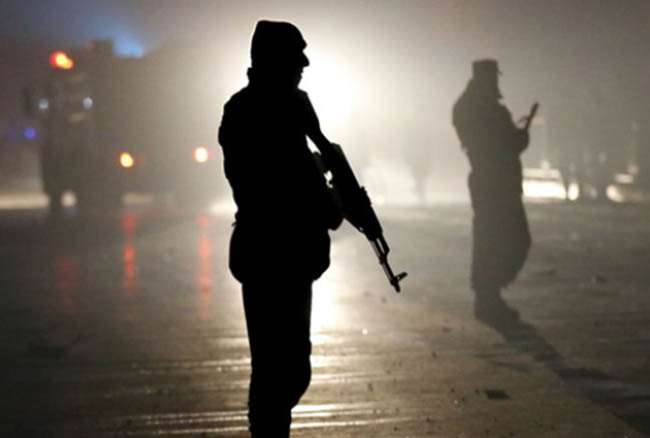Deadly attacks against nations make the international headlines and people suffer severely in one way or another. Their fundamental rights – i.e. their rights to life, liberty and property – are violated flagrantly and their dignity is disrespected. Streams of blood are shed every minute which means that people fall victim to the escalated war and violence.
The militant fighters have changed the world to a real dystopia for nations. Freedoms of the public are curtailed to a great extent. People lack peace of mind. They fear to be the next victims of terrorist attacks or suicide bombings while commuting. It is because militants target civilians, including women and children, in cold blood. The indiscriminate attacks continue to add to civilians’ fatalities and life has turned extremely cheap. The escalated militancy has filled the air with a strong sense of fear and anxiety and made the public to lose their trust in democracy and democratic discourses.
To view social and political states around the globe, there is a fight between the proponents and opponents of democracy. The former supports democratic practices and international instruments. That is to say, the proponents of democracy exercise tolerance and the spirit of brotherhood toward the public with the hope of forming a civil and democratic society where people could exercise their rights and liberty with peace of mind. They believe that all people are born free and equal in rights and dignity, as it is stated in the Universal Declaration of Human Rights (UDHR), and individuals will have to treat one another with respect. If one’s dignity is disrespected or one’s blood is shed, the supporters of democracy raise their voice against it to advocate the rights and dignity of each individual.
On the other hand, the opponents of democratic discourse seek to spill the blood of people, treat them with disdain, and degrade them in some ways. They, who are mostly radical individuals affiliated to a militant party, claim that democracy is a modern product and in conflict with their mentality. They are not able to reconcile their radical worldviews with a democratic society. Their radical ideology leaves no room for tolerance or brotherhood. Therefore, they intend to hamper democratic moves and target people for their faith in democracy.
One will observe this fact in many societies, particularly in Afghanistan. The bulk part of the people advocate democracy and hope for a peaceful society so as to be able to exercise their rights and freedoms without barriers. They have strong faith in Constitution, which is a significant landmark in the post-Taliban Afghanistan.
On the contrary, a number of individuals deem democracy against their mindset and deep-seated traditions claiming that it will put them at stake. There are two kinds of hostile attitude towards democracy namely conservative and radical. Although conservative individuals are not optimist about democracy, they do not campaign against it practically. They practice upon their traditional mindset and consider democracy against social norms and cultural values. According to them, democracy will play a destructive role and jeopardize their faith and culture. The fundamental individuals and groups strongly oppose democracy and campaign against it very harshly. The radical attitude belongs to ideologues and militants.
The harsh practices of the fundamental parties hamper the process of democratization in Afghanistan and curtail the public liberty. They sow the seeds of fear and disappointment through targeting soldiers and civilians alike. The militants show no tolerance towards democratic movements for not being able to reconcile their harsh ideology with democracy, which is the product of modern world.
It is widely believed that the ongoing violence and militancy in war-ravaged country, including Afghanistan, root in radical ideology and this is the war of radicals against liberals or the war of opponents of democracy against its proponents.
The post-Taliban Constitution of Afghanistan is based on democratic principles and recognizes the Universal Declaration of Human Rights (UDHR) and United Nations Charter. Unlike traditional or radical mindsets, the constitution deems equal rights for men and women and rejects all forms of discriminations on the basis of one’s gender, race, or beliefs. It also recognizes the natural and inalienable rights and inherent dignity of all individuals who are urged to treat one another with respect. It is stated in article 24, “Liberty is the natural right of human beings. This right has no limits unless affecting others freedoms as well as the public interest, which shall be regulated by law. Liberty and human dignity are inviolable. The state shall respect and protect liberty as well as human dignity.” In short, the hegemony of democracy prevails in Afghans’ social and political life.
Nonetheless, this constitution is not acceptable for radical parties for not supporting their fundamental ideology and their narrow view of human rights. Thus, they seek to impose their radical norms and values on the public with the barrel of gun.
Home » Opinion » The Clash between Radicals and Liberals
The Clash between Radicals and Liberals
| Hujjatullah Zia

